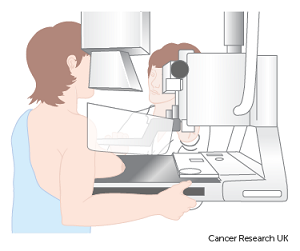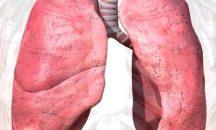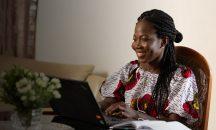Breast cancer – Questions on your mind (final part)

Screening for Breast Cancer
[Our education on breast cancer continues this weekend with the final part of the question and answer format]
9. What will happen when I see my Doctor?
If your appointment is in person, your doctor will examine your breasts.
After speaking to you on the phone, or examining your breasts, your doctor/Nurse may:
• Decide there’s no need for further investigation
• Ask to see you again after a short time
• Refer you to a breast clinic
Being referred to a breast clinic does not mean you have breast cancer, just that further assessment is needed to find out what is going on.
If your doctor is male and you do not feel comfortable going to see him, ask if there is a female doctor or practice nurse available.
You can also ask for a female nurse or member of staff to be present during your examination, or you can take a friend or relative with you but check first if you are able to do this.
10. What is breast screening?
Breast screening uses a breast x-ray, called a mammogram, to look for cancer that may be too small to see or feel.
The sooner breast cancer is diagnosed, the more effective treatment is likely to be. Screening can pick up breast cancer before there are any signs or symptoms.
How can I make an appointment?
If you’re a woman aged 50 up to your 71st birthday, you must make breast screening a practice every three years. If you are a man, make it a point to accompany your wife/ partner, do not be a spectator, be involved, you are a reliable witness. Also, ask to be checked. Find out how to contact the screening unit on the health essentials website, http://www.healthessentialsgh.com
11. Advantages and disadvantages of screening
Advantages
Screening breast cancer early
The sooner breast cancer is found, the more likely it is to respond well to treatment, and the less likely you need more extensive surgery.
Screening prevents deaths
Screening prevents an estimated 1,300 deaths from breast cancer each year in Ghana.
Disadvantages
It can be uncomfortable
However, this isn’t always the case and a mammogram only takes a few seconds.
Some women will be offered unnecessary treatment
Some cancers found through screening will not develop any further or will grow so slowly that they will never cause any harm during a woman’s life.At the moment, doctors cannot tell which cancers can be left alone, so treatment is offered for all breast cancers. This means some women may have unnecessary treatment (known as overtreatment).
A small number of cancers are missed
Mammograms are the most reliable way of detecting breast cancer sooner. However, they are not 100 per cent reliable and a small number of breast cancers are missed. For example, if someone has particularly dense breast tissue this may potentially mask a problem on a mammogram.
Being recalled can cause worry and distress
Around four out of every 100 women screened are recalled for further assessment.
Most of these women do not have breast cancer. But being recalled or having more tests can cause a lot of worry and distress.
You’re exposed to a small amount of radiation
The amount of radiation you’re exposed to during a mammogram is very low. and you would receive a similar amount from a return flight between London and Australia.
12. What happens during breast screening?
Your appointment will be at a breast screening unit
This might be a breast screening clinic or in some areas a mobile screening unit.
First, you’ll be asked to complete a questionnaire. It will ask about any ongoing medical conditions, if you’re having hormone replacement therapy (HRT), and if you’ve had any breast problems.
With regards to the imaging aspect, you would be referred by need bases by the doctor after the physical examination.
Let her know if you’re pregnant or think you may be pregnant.
13. Getting your results
The results of your screening mammogram are sent to you or your doctor.
Most women will receive the report telling them their mammogram showed no signs of cancer. They’ll be invited for screening again in three years.
Some women will get a letter asking them to come back for further assessment. This is because more tests are needed to assess a change seen on the mammogram. Being recalled doesn’t necessarily mean you have breast cancer, just that more tests are needed.
Occasionally, some women receive a letter asking them to go back for another mammogram because a technical issue meant the image was unclear.
14. Being aware of status of breast between mammograms
Having mammograms cannot prevent breast cancer, and it’s possible for breast cancer to develop in the three years between each mammogram. It is important to be aware of the status of your breast and report any changes to your doctor even if you have had a mammogram recently.
Compiled by Dr. Ebenezer Anobah
With Dr. Kojo Cobba Essel














